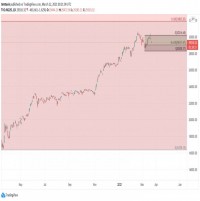|
In Search of Harmony Coordinating the oversight of futures and securities markets is on the agenda as Congress moves from medical insurance legislation to financial regulation. But it is not clear how and to what extent this will be done. Among those calling for changes is Duncan Niederauer, the chief executive of NYSE Euronext. "We're still concerned with gaps in SEC and CFTC regulation," he said at a September 24th conference of the Investment Company Institute, the mutual fund trade association. He argued for the regulation of over-the-counter derivatives and the so-called dark pools, private trading venues that have increasingly attracted hedge funds and mutual funds-taking away business from regulated exchanges such as the NYSE. While many people in Washington think the equity market is a bastion of transparency and regulation, he says, in reality 40% of trading is opaque and largely unregulated, with private pools that do not display quotes and liquidity. He said NYSE pays 80% of compliance costs and can't tolerate different regulatory burdens; there has to be a one-level playing field. Futures exchanges themselves are not seen as a problem. Walt Lukken, senior vice president at NYSE, said that they don't see systemic risk in futures markets where hedge funds are trading. These markets continued to function during the 2008 crisis and were not a problem. Nevertheless, there are questions about the separate oversight of futures and securities markets. Arguments for consolidating regulation address the need to fill what are seen as regulatory gaps. But merging the Commodity Futures Trading Commission with the Securities and Exchange Commission, as recommended by the US Treasury last year, now appears to be unlikely. Disparate Missions Few people appreciate the differences between securities and futures, says Erik Sirri, a former director of the SEC Division of Trading and Markets and currently professor of finance at Babson College. It is more complicated than just merging agencies because the underlying markets and laws are different, he suggested at the ICI conference. One sharp distinction is that professional traders dominate futures markets, whereas retail investors are a big part of the stock market. The markets perform different functions. Futures markets do not raise capital for companies, instead they enable the shifting of risk to those willing to take it and the determination of prices. These market characteristics make for distinct regulatory missions. The SEC focuses on investor protection while the CFTC's priority is the working of the market. Mr. Sirri said that innovation is easy in futures-a new contract can be introduced quickly and if it does not work, it disappears. So products come and go all the time. By contrast, the SEC takes the opposite approach, taking time to consider a product's design and how investors will fare with it. One result of this divergence: getting approval for options on exchange-traded funds took years. The CFTC saw these as a commodity options but the SEC regarded them as securities options, since ETFs trade on the NYSE. Chart a Path Another area where the dissimilar missions show up is when a trader, such as a hedge fund, fails. The SEC wants to freeze the assets by way of protecting customers, but from the CFTC point of view, that will disrupt trading and may threaten systemic market integrity. Flash orders, which the SEC has moved to ban, is another point of difference. The SEC regards it as unfair that flash orders allow one group to get information not available to others. But for the futures market, this is not an issue. Mr. Sirri argues that even if the agencies were merged, these differences would remain within the single organization. He favors harmonizing regulations now while leaving the option of agency integration down the road, as the issues are worked through. So far the Obama administration does not appear to have specific suggestions. A white paper calls on the SEC and the CFTC to chart a path to harmonization and joint regulation but there are a host of issues, says Jeffrey Brown, senor vice president at Charles Schwab & Co. |
|
This article was published in Opalesque Futures Intelligence.
|





 RSS
RSS











